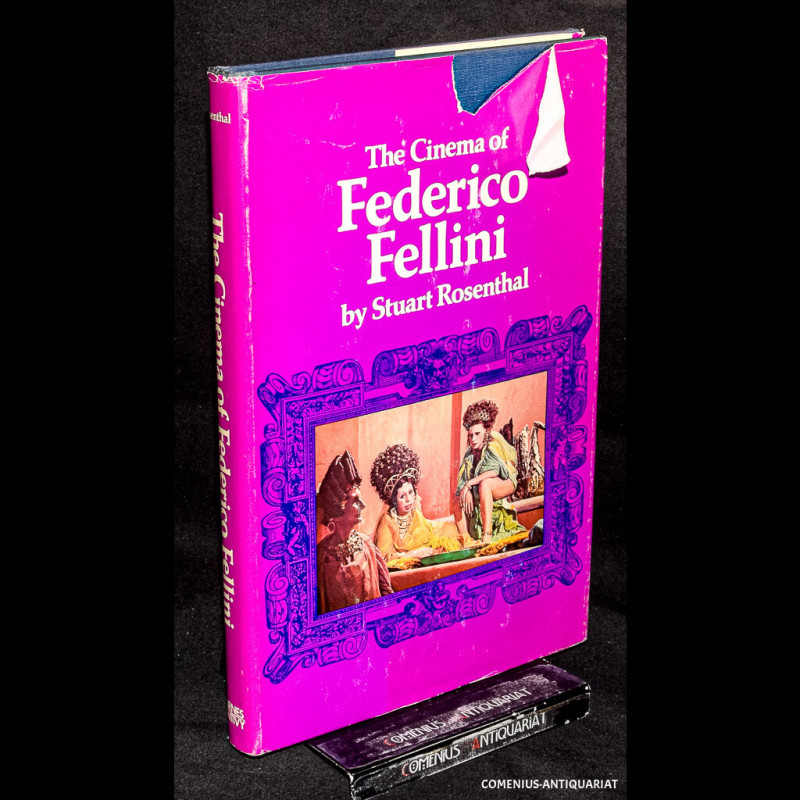Rosenthal, Stuart,
The Cinema of Federico Fellini. South Brunswick, New York: Barnes, 1976. 190 Seiten mit Abbildungen, Literaturverzeichnis und Register. Pappband (gebunden) mit Schutzumschlag. 4to. 256 x 169 mm. 507 g
* Einband schwach lichtrandig / gebräunt und bestossen, Schutzumschlag mit Riss, Name auf dem Titelblatt.
Bestell-Nr.159827 | ISBN: 0-498-01450-9
Rosenthal |
Film |
Kino |
Fellini |
Federico Fellini
The Cinema of Federico Fellini
STUART ROSENTHAL
Federico Fellini, who won the Academy Award for Best Foreign Picture in 1975, with Amarcord, is one of the most brilliant names in world cinema. He began as a screenwriter for Rossellini and other prominent figures in Italian neo-realism, and achieved international fame in his own right with La Strada, I vitelloni, and Nights of Cabiria.
When La dolce vita appeared at the end of the Fifties, it touched Off a scandal of global proportions, and his subsequent movies, 81/2 and Juliet of the Spirits, have been acclaimed as "masterpieces of baroque art." More recently, films like Roma and Amarcord have sustained the image of Fellini as a movie magician.
This challenging new book on Fellini dispels the myth of impenetrability that often surrounds the director's work. Viewing Fellini's career as a whole, rather than on a film-by-film basis, the author reveals the thematic continuity and development that underlie the great Italian's approach to the cinema. Stuart Rosenthal carefully analyses the director's presentation, symbolism, camera style, and penchant for spectacle. Then he elucidates Fellini's efforts to come to terms with his past in all his films, from Variety Lights to Amarcord. In the course of this examination, each film is discussed in detail.
This volume includes portions of the author's own interview with Fellini, a full bibliography, the most complete Fellini filmography yet assembled, and more than 120 pertinent stills. It will be appreciated by those still relatively unfamiliar with Fellini's world, as well as by those enthusiasts who have made a close study of his films.
Stuart Rosenthal contributes writings on film to several midwestern news. papers, including the St. Louis PostDispatch and The Kansas City Star. He reviews regularly for Focus on Film magazine and is the U.S. correspondent for the International Film Guide. His study of Tod Browning appears in VoIume 4 of the Hollywood Professionals series. Dr. Rosenthal has also taught courses in film at Stephens College and at the University of Missouri. He has lectured both in the United States and abroad.
Rosenthal was born in Tulsa, Oklahoma and received a Bachelor of Science in Biochemistry from Michigan State University. He began to write seriously about film while working toward his M.D. degree at Washington University in St. T Ollie Dr. Rosenthal now practices Nuclear Medicine in Portland, Oregon, where he also teaches at the Northwest Film Study Center.
Jåcket design by Stefan Dreia. Front jacket picture is from Fellini-Satyricon. Back shows Fellini directing a scene for 8½






 Privacy
Privacy
 Shipping Costs
Shipping Costs
 Google Mail
Google Mail
